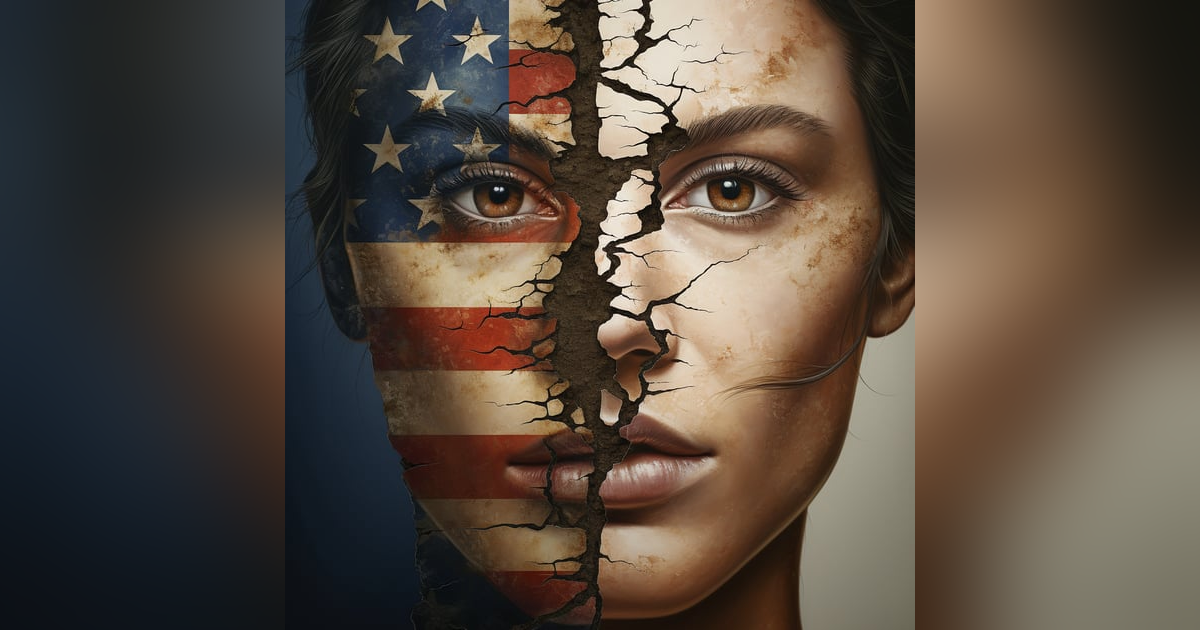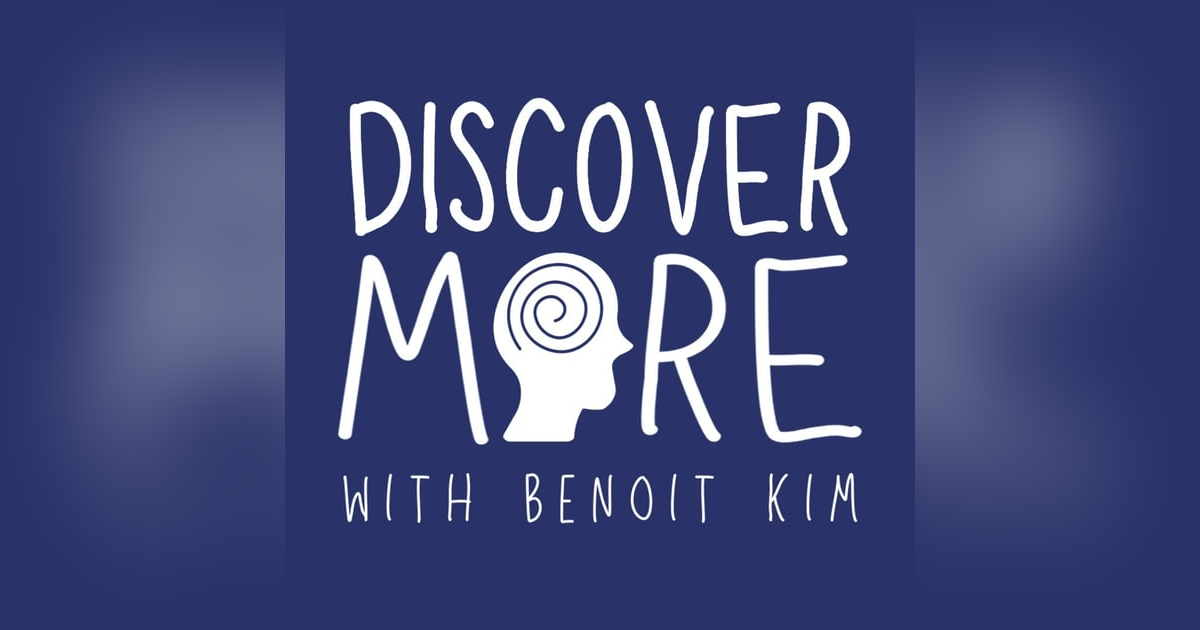#149. The Mental Health Crisis of America Is Here - Antonia Hylton | MADNESS


Why is there a mental health crisis in America? Is the culture of America sick? Is journalism dying in America?
Today’s conversation with an Emmy-award-winning journalist will reveal exactly how culture influences community mental health care and th...
Why is there a mental health crisis in America? Is the culture of America sick? Is journalism dying in America?
Today’s conversation with an Emmy-award-winning journalist will reveal exactly how culture influences community mental health care and the history of mental health stigma in America.
Antonia Hylton is an Emmy-award-winning journalist and news anchor at NBC News reporting on politics and civil rights, and the co-host of the hit podcast Southlake.
Antonia graduated magna cum laude from Harvard University, where she received prizes for her investigative research on race, mass incarceration, and the history of psychiatry.
Expect to learn about the thesis of the book Madness, the necessity of intellectual diversity, why America Is divided, the sick American culture, the need for common humanity, why pain does not discriminate, and more in this mental health podcast episode.
You can grab her forthcoming book, Madness: Race and Insanity in a Jim Crow Asylum, on January 23rd, everywhere!
Let's get this started.
*
Rate The Podcast: HERE
Show Notes:
Antonia’s Book: HERE
Antonia’s Website: HERE
Antonia’s Instagram: HERE
Antonia’s Twitter: HERE
*
Subscribe to YouTube: Discover More
Discover More Website: HERE
Come say hi on Instagram: HERE
*
Discover More is a social sciences podcast for independent thinkers who appreciate the importance of nuances with mental health as a throughline. Looking for deep thinking?
*
Listen to all full-length episodes on audio:
Apple Podcasts: https://podcasts.apple.com/us/podcast/discover-more/id1478666639
Spotify: https://open.spotify.com/show/4OQZ0SEZ30BNFX5m4hCZEl
*
Thank you for Discovering More with us!
Discover More: Why is there a mental health stigma in America?
Discover more is a podcast for independent thinkers who appreciate the importance of nuances with mental health as a through line. Today's conversation with an Emmy Award winning journalist will reveal exactly how culture influences community mental health care and the history of mental health stigma in the United States.
Beyond Madness: The History of Mental Health
This book looks at Jim Crow, but in a space that few people ever think those laws, that culture, that reality actually applied to. Even spaces as ostensibly therapeutic and fulfilling as hospitals were subjected to the same kind of separation of races. You can't imagine a better mental health care system without going back first.
The Hidden History of Crownsville Hospital
Crownsville Hospital, despite its long standing racist history and origin story, did not close until 2004. What's happening in 2004 can't be divorced from what was happening in the 1990s. History is so important to this, right? You can use history to actually have more empathy for people.
Post-Partition: The Fight for Mental Health Care
In chapter 17, you say Nixon wanted to review the efficacy of government fundamental health programs. I think this is especially relevant in today's deep chasmic divide in the sociopolitical landscape we live in. Any thoughts?
In the Elevator With Mental Health
Mental health is a really fascinating topic because everyone has a touch point for it. In every single community across this country, there was a lack of willingness to put up the dollars to build the system. Once the rubber hit the road and the going got rough, people didn't want to pay. Once you can reckon with that, it makes it easier to figure out how would we solve it.
In the Elevator With Audience
And I do want to go into the topic of intellectual diversity or thought diversity. I think it's unfortunate that we as a society, we're still grappling with ethnic and racial diversity. Mental health is one of these last remaining areas in which you can connect with people in such a heartfelt level.
How To Write a Dispatching Book
How do you approach contentious or disagreeing parties and folks with these touch points? What is your process and spotlight these common points? It takes a lot of patience because you have to build trust and relationships with people. It also means acknowledging what you don't know.
Realistically Speaking: The Story of Crownsville Hospital
You interviewed more than 40 formal patients and employees of Crownsville Hospital to honor the importance of oral history. Can you recall any reality breaking moments from your process? What does journalism mean to you in this current era of misinformation and disinformation and headline culture?
Crownsville: The Dark, The Light
A thesis of your book is to highlight the very clear and dreadful connection to today's justice system. Comparing Crownsville to our justice system answers a lot of the questions about why our country looks this way. Often it's people of color who have the hardest time getting access into care.
Mental Health, Chapter 18
All of us live with traumas, pain, grief. All of us have the potential to be a patient. Many of us are only one life experience away from needing care. People need to see more of themselves in others who are seemingly unlike them.
How Does America Decide Who Is Sick or Criminal?
How does America decide who is sick or criminal and who is worthy of care or irredeemable? Often black people are left out and excluded from being able to be seen as redeemable. It will take a new dialogue, a new program and a new vision for treatment in the US.
Social Linguistics and Neuroesthetics
Social linguistics implies that the language we use day to day are culturally influenced and constructed. Subconsciously, the metaphors, the analogies, that you're subconsciously shaping your landscape internally. For anyone that's interested, I encourage them to dive deep into social linguistics.
On Mainstream Representation
As asian American, I really struggle with that because until recently, with the k wave, the mediotric rise of kpop K culture, and asian american representations in Hollywood, we were non existent. That's why mainstream representation is very, very important, especially for any minorities.
Asian-American Relationships
I witnessed countless hatred and intersectional racism between the asian people and the black people. Are there really places for reconciliation without really challenging the system at bay? What ways in which can we have cross cultural dialogue about this?
The Help of the Super-Cops
Antoniallo: How about the bystanders that witnessed many of these atrocities and chose to do nothing? She asks one of the nurses from Crownsville about that in the epilogue. Even if you're not Daniel Penny, you have a role to play in it, too, she says.
Don't Complain About Nothing
I tell my mentees, and just folks and even friends, if you're not going to partake and contribute or do something about it, stop complaining. Complaining incessantly without actionable items is a waste of time for everyone involved. Actions create opportunities.
The Need to Talk About Mental Health Among Black Kids
The rate of suicide among all minority youth in the United States is skyrocketing. Less than half of children of color who come to emergency rooms in the midst of a crisis are able to get connected to ongoing care afterwards. This is a call to action. Actions create opportunities.
Finishing 'The End of Me'
And so I was telling my agent the other day, I was like, I finished this book. It's been on my spirit for ten years. If just, like, one person read it and learned something and cared a little bit more about mental health care treatment because of it. I'm done.
Black Lives Matter: Stigma
Of course, we didn't go into the genesis of stigma in black communities. No one story and no one label defines who you are and your self worth. The process of change takes time. We must be gracious and be open and hold space.
A Conversation With Antonio
Antonio: I feel like I've poured my heart out to you. This has been such an enriching conversation. Are there any other thesis or messages you feel like we haven't talked about today that you want to project onto a massive messaging board?
Madness: A Podcast Conversation
Antonia: My book, madness, will be out January 23, 2024. You can preorder it everywhere now. I'm going to be on tour around much of the United States. If you derived any value from this episode, please share it with one friend.





